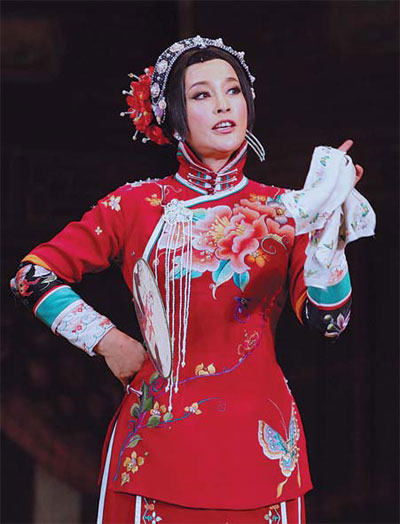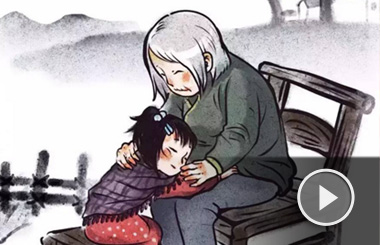Two of a kind
 |
|
Liu Xiaoqing, a legendary actress in China's showbiz, plays the lead role of Sai Jinhua in The Beauty. Wang Xin / For China Daily |
A historical legend comes alive onstage when portrayed by a screen legend with an equally colorful story.
Once in a while, the parallel between actor and role is so uncanny that a new dimension is created not so much through acting, but through the fusion of two giant personalities.
To fully enjoy The Beauty (Fenghua Juedai), one needs to know the actress who plays the lead role and compare her with the historical character she incarnates onstage.
The play is about Sai Jinhua, who was born in 1870 or 1864 and died in 1936. She was the best-known courtesan during the turn of the century and during the first few decades of the 20th century when China transformed itself from an imperial dynasty to a chaotic republic.
|
 |
Sai was a young harlot in Suzhou when a retired official with the title "Zhuangyuan", meaning top rank imperial scholar, selected her to be his concubine. When he was sent as an emissary to Germany, Russia, Austria and the Netherlands, Sai went along as his wife, exposing herself to a life that - to most in China - is out-of-this-world exotic.
After they returned to China, the husband died and Sai resisted the idea that she would live out the rest of her life as a self-cocooned widow. Instead, in an effort to pick up where she left off before her marriage, Sai opened a "book residence" in Shanghai, a euphemism for a high-end brothel.
But as she explains in the play, her girls do not sell their bodies. They provide companionship for tea parties and other social functions. Of course, should something intimate happen between a girl and her client, it's their business, says Sai to a hypocritical prince who persistently tries to shut her down.
The prince used to be a student of Sai's husband. A brothel hopper, he sees Sai's business as tarnishing his former teacher's reputation. So, he forced it into closure. But Sai, forever ingenious, reopened it in Beijing, and even groomed a coterie of palace insiders as her clientele.
|
 |
When Western troops occupied Beijing in 1900, the royal officials fled, leaving civilians to fend for themselves. To forestall pillaging by the invaders, Sai offered to talk to General Alfred Graf von Waldersee, the Allied Supreme Commander in China.
While in Germany as an ambassador's wife, Sai had been a guest of Waldersee. She had also mastered some German. Using her diplomatic skills and her feminine bewitchery, Sai was able to beguile Waldersee and convince him to treat the people better.
The playwright is aware that this crucial detail cannot be corroborated. People might have blown up the significance of Sai's deeds simply out of frustration with the corrupt Qing (1644-1911) government. So, the play employs a couple of tabloid reporters who retell the story through their wildly exaggerated prism.
Sai is not portrayed in the play as a national hero per se, but comes off as a decent, independent, strong-willed woman who, unlike the powers-that-be, has a sense of right and wrong. And what a seductress!























